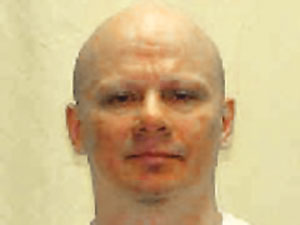Lawyers for Robert Van Hook, convicted of murdering gay man in 1985, told court psychological reports could have supported his claims of mental disease
LISA CORNWELL | Associated Press
editor@dallasvoice.com
CINCINNATI — A federal appeals court on Tuesday, Oct. 4 upheld an Ohio man’s death penalty for killing a man he met in a gay bar in 1985, rejecting claims that prosecutors violated his rights by not providing psychological reports showing he may have been motivated by “homophobic panic.”
A three-judge panel of the 6th U.S. Circuit Court of Appeals unanimously affirmed a lower court’s ruling upholding the death penalty for Robert Van Hook, 51. The panel also rejected claims of ineffective counsel.
Van Hook’s attorney, Keith Yeazel, said Tuesday that he will either appeal to the full 6th Circuit or the U.S. Supreme Court after he has a chance to review the ruling.
The Supreme Court in November 2009 reversed an earlier decision by the 6th Circuit panel that had found ineffective trial counsel, and the panel said Tuesday that it was bound by the high court’s decision.
Van Hook’s latest appeal argued that the psychological reports showing he may have been motivated by “homophobic panic,” or rejection of his homosexual urges, rather than robbery, could have been used to support his claim of mental disease. The reports also would have been used to counter the murder element of “specific intent to cause the death of another person” and the aggravated robbery factor contributing to the death penalty, the appeal stated.
Van Hook claimed temporary insanity, but never denied strangling and then stabbing David Self to death at his Cincinnati apartment.
Prosecutors said he lured Self to the apartment with the intention of robbing him. He then mutilated Self’s body with a kitchen knife, hiding the murder weapon in the corpse before fleeing to Florida, where he was arrested and confessed.
This article appeared in the Dallas Voice print edition October 7, 2011.

















How do you hide a murder weapon “in” the corpse??